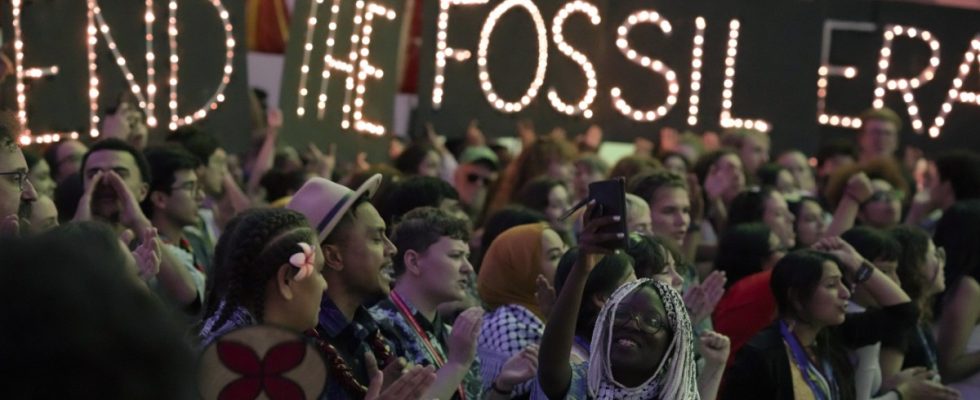For a long time it looked like a perfectly organized climate conference: good news at the beginning, an ambitious host, millions in aid pledges from rich countries. But now this climate conference has not just been extended. It could fail completely: States cannot agree to set a final deadline for the use of fossil fuels such as coal, oil and gas. Europeans, island states, countries like the USA and Brazil are demanding this – they want to at least have the chance to stabilize global warming at 1.5 degrees Celsius. Oil-rich countries like Saudi Arabia are against it.
Conference President Sultan Ahmed al-Jaber had originally made the 1.5 degree target the measure of all things. It’s about keeping this goal within reach. “Failure is not an option,” al-Jaber appealed to the states. But then he presented a proposal in which there was no longer any trace of the gradual abandonment of coal, oil and gas. The climate summit was actually supposed to end on Tuesday. He’s been upside down ever since.
It’s about the central result of the conference, the “global inventory”. After not nearly enough has happened to even reduce emissions in the past eight years, it should now set a clear course for the next few years. Most countries are in favor of phasing out fossil fuels phase out. Al-Jaber himself boasted that it was the first time that concrete negotiations had been made about this phase-out – which is true: up to now, climate summits have always avoided this demand.
The first draft of the final declaration leaves everything open
The first draft of the agreement, however, leaves all doors open. The production and consumption of fossil fuels should at best be “reduced” with the aim of achieving net zero emissions sometime by the middle of the century. But that would mean that oil, gas and coal could continue to be mined if only the associated emissions were compensated for in some way. Or if the resulting climate-damaging carbon dioxide were captured and stored. So nothing would change much at first, and even that would all be voluntary if it stayed with this draft: the states can reduce emissions, they must but it doesn’t.
But the resistance is massive. “We will not sign our death warrant,” says the minister from Samoa, Toeolesulusulu Cedric Schuster – he speaks for the group of small island states. “We cannot sign anything that does not contain strong commitments to phasing out fossil energy.” Federal Foreign Minister Annalena Baerbock (Greens), who is negotiating on behalf of Germany, also expressed disappointment. “Essential elements are not acceptable to us as the EU,” she says. Instead of giving companies clarity that they should forego any fossil investment, even the construction of new coal-fired power plants is possible with this proposal. The 1.5 degree target cannot be achieved this way.
Negotiations continued throughout Tuesday. A new text could defuse the dispute. There are many indications of a power struggle; a strong counter-block has formed. This not only includes Saudi Arabia, which, like other oil countries, rejects any move away from fossil fuels – and not just since the OPEC Secretary General called for resistance in a letter. India doesn’t think much of this either phase out – but especially with a view to coal, which it wants to continue to mine for a while. However, these countries have not yet spoken out openly. China’s position is unclear.
As if that weren’t enough, the Europeans are also on the defensive in other areas: a text module about aid that is intended to help poor countries better adapt to the consequences of climate change stipulates immense financial obligations. The Europeans fear that they will ultimately converge on the industrialized countries. So you are fighting on two fronts. They had already promised a fund to deal with damage and losses in poor countries at the beginning of the conference and filled it with several hundred million euros. This created a good atmosphere at the start – but the EU can no longer bring this into the final phase of the negotiations.
There are already the first voices among Europeans who do not rule out the failure of the conference if the line of countries like Saudi Arabia prevails. The EU must reject a result that does not serve the climate, said Green MEP Michael Bloss of the SZ. “Better no result than a bad one.”

